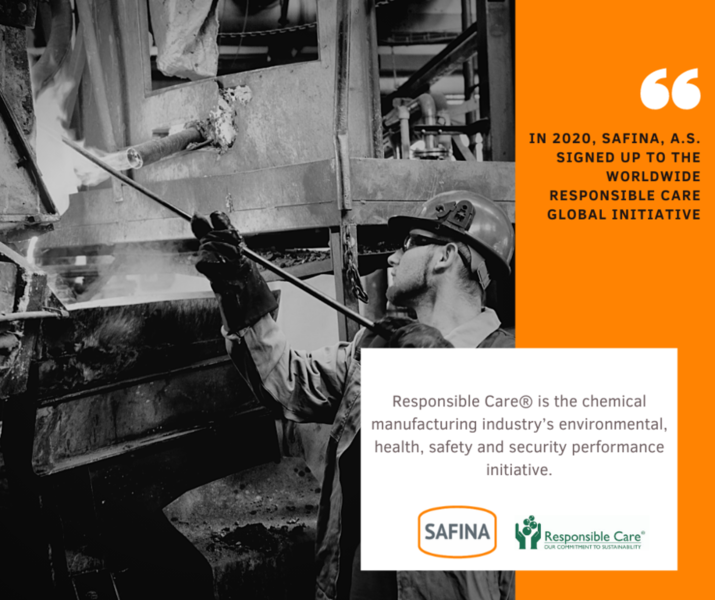In 2020, SAFINA, a.s. signed up to the worldwide Responsible Care global initiative under the auspices of the International Council of Chemical Associations (ICCA).
The basic principle of the Responsible Care platform is to continuously improve performance in the field of environment, health and safety, technology, processes and products throughout their life cycle, thus preventing damage to human health and the environment and efficient use of resources.
Responsible Care is an ethical standard and commitment made to build trust in industry, which is essential for raising living standards and quality of life and for sustainable development.
For our company, engaging in Responsible Care means volunteering for extended principles of social responsibility in the field of environmental protection, human health and the use of natural resources and processes that go beyond the requirements of existing legislation, especially in the areas of:
• continuous improvement of the environmental, health and safety performance, safety of equipment and safety of SAFINA, a.s. and overall CSR society (which also includes the areas of support for education, the socially disadvantaged and children from children’s homes).
• open communication with public authorities and the general public.
• cooperation with business partners to support the safe handling of chemicals in their production and business activities.
• supporting innovation leading to sustainability.
Responsible Care platform in numbers:
A summary of the performance reports of the companies involved in Responsible Care for 2019 shows that the platform:
• monitors the security incidents of the process voluntarily, since 2010 the participating companies have reduced their incidence by 6% and since 2000 by a total of 48%.
• is committed to the safety of workers and equipment. The companies involved have almost 3 times better results in the area of employee safety than in the chemical industry worldwide.
• reduced the recordable incidence of accidents and illnesses by 22% since 2010, which is a significant step towards the overall goal in the field, operation without accidents, injuries or damage to human health.
• has reduced releases of hazardous pollutants by more than 24% since 2010.
• since September 11, 2001, it has invested approximately $ 25.7 billion in further enhancing facility safety.
• has improved its energy efficiency by 19% since 1992 (qualified estimate based on data from a representative sample of members).

